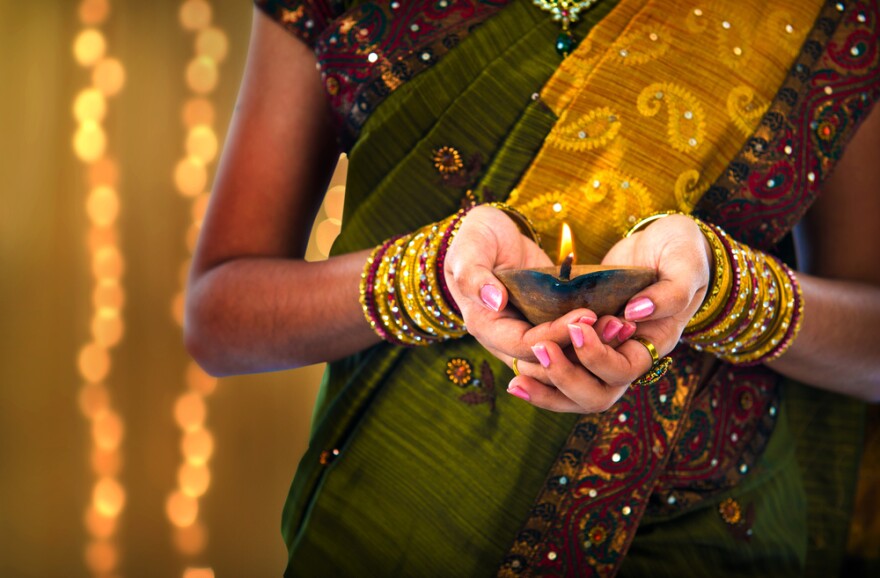A Dallas member of the state board of education in 2009 drew criticism for comments made about the importance of the Hindu holiday Diwali in comparison to such occasions as Christmas or Rosh Hashanah.
Geraldine "Tincy" Miller later apologized for the remark. But in her commentary, Tina Srivastava wanted to make clear the meaning of Diwali.
http://stream.publicbroadcasting.net/production/mp3/kera/local-kera-864159.mp3
Diwali is a festival celebrated by more than a billion people every year. Hindus, Sikhs, Buddhists, and Janis celebrate it by lighting candles to symbolize the awareness of the inner light.
Hinduism is a highly philosophical religion with a strong foundation that has survived for over 5,000 years. It is a monotheistic religion, meaning followers believe in one God who may take several manifestations. In Christianity, Jesus, the son of God, is sent to Earth to walk among the people and lead by example. Similarly, in Hinduism, Ram, manifestation of God himself is sent to walk among the people and lead by example. The story of Diwali centers around Ram and through Ram's example, the story teaches people about resolving tough ethical dilemmas in real life situations, how to overcome feelings of arrogance and egoism, and how to fulfill your Dharma or obligations to family and society. In the story, Ram defeats the corrupt king, Ravan, and restores peace to the kingdom. For me, Diwali is a time to celebrate this victory of a good heart and rational mind over greed and corruption by gathering with my family and friends, talking about the ethical lessons depicted in the story, doing community service, and lighting candles and fireworks. It is also a time of festive cooking, gift giving, and reflecting on your life and how to be a good virtuous person.
Through the story of Diwali, Hinduism teaches simple living, a high level of analytical thinking, and striving for unity with the universe. Hinduism is more of a philosophy than an organized religion because it provides the freedom for people to practice in any way that works for them. This is why the practice of Hinduism varies greatly by region. The essence of the religion is living in harmony with the world and being good for its own sake, not on threat of punishment or wrath of God.
Hinduism is truly a tolerant religion as it does not believe in converting others; there is no burden to spread Hinduism, but rather followers must look inward and better themselves by being good people, helping the poor, and not hurting others. This is what is meant by the inner light, symbolized by the lighting of candles during Diwali.
Hinduism is a very sophisticated religion, and there are no specific rules like the Ten Commandments or eight-fold path; it takes dedication to understand this highly philosophical religion.
This year (2009) Diwali will be celebrated on October 17 with great enthusiasm and reverence by over one billion people. In order for a class on world culture to be comprehensive, it makes sense to include a holiday that one out of six people on Earth celebrate.
Today's world politics are dominated by religious and ethnic strife. We would be doing a disservice to our students if we fail to at least teach them about the major world religions, cultures, and traditions in order to bring about a better understanding, harmony, and promote world peace.
Tina Srivastava is a recent aerospace graduate from MIT.
If you have opinions or rebuttals about this commentary, call (214) 740-9338 or email us.




